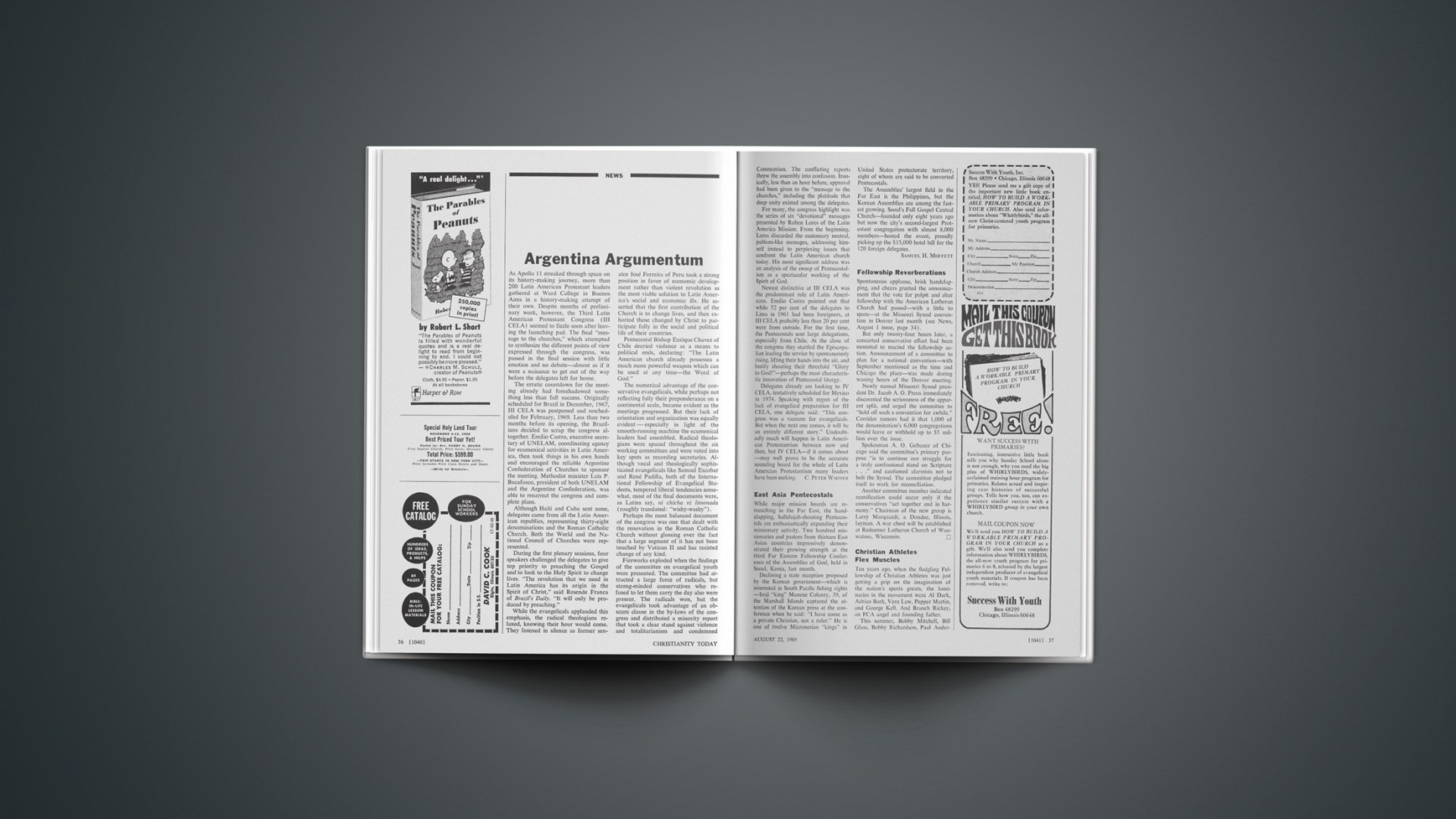Missionary education in Pakistan, largely controlled by United Presbyterians, United Methodists, Anglicans, and Roman Catholics, is about to change. But the question is how.
A few things are certain. Pakistan’s Muslim government is determined to execute reforms designed to prevent any recurrence of the revolution that ousted President Ayub Khan this spring. Reform proposals are circulating the country and in September will be finalized. Missionaries are aroused over a proposal dealing with foreign missionary schools. It asserts these “tend to spread directly and indirectly the doctrines of religion and culture which are alien to our national values and Islamic concepts of life.”
Further, the proposal is critical because Muslim educators employed by these schools often are not allowed to take part in institutional decision-making.
Debate centers over the proposal’s conclusion: “The policy should therefore aim at nationalizing the institutions”—particularly the meaning of “nationalize.”
Significant is a small exception: “This recommendation should not apply to educational institutions run entirely by Pakistani non-Muslim communities.”
In early July a German press agency reported that missionary organizations working in Pakistan were going to lose all educational institutions that hadn’t been handed over completely to Pakistani leadership. Missionaries would have to give up their work, the release contended.
A Pakistani embassy official in Washington called this “ridiculous,” saying Pakistan doesn’t intend to “take over” the religious schools. His explanation is that the prohibitive cost at these schools allows only the very rich to attend. The government would like to see that educational benefits “filter down to the poor” by controlling admissions. It also wants to eliminate problem-causing curriculum differences. The embassy spokesman stressed that no one is asking missionaries to leave.
United Presbyterian Dr. R. Park Johnson reported that his Commission on Ecumenical Missions and Relations (COEMAR) maintains three colleges in Pakistan as well as secondary schools. Twenty-five missionary educators are involved. Government officials, he claims, told him they want to nationalize administration, not curriculum. Besides, says Johnson, his schools already follow the national curriculum, a requirement for granting degrees.
Johnson admits he’s a bit worried about the future of voluntary Bible-study activities under Muslim administrators. Consequently, he is having “conversations” with government officials, from whom he expects assurances that traditional Christian activities can continue.
Fundamentalist Carl McIntire and K. L. Nasir, a Pakistani formerly associated with COEMAR who is now with McIntire (see June 7, 1968, issue, p. 44), see the proposal’s exemption of “educational institutions run entirely by Pakistani non-Muslim communities” as putting COEMAR in a tight squeeze. McIntire and Nasir, maintaining that all of the “apostate” COEMAR’s properties in Pakistan are rightfully theirs, are calling on COEMAR to “give them back.” They are asking Anglicans and United Methodists to do the same, believing all three will prefer the control of Nasir’s nationals to a Muslim government “takeover.” Why to Nasir rather than other Christian nationals? Because, claims McIntire, all Christian Pakistani nationals give allegiance to him.
McIntire is delighted: “The missionary bodies are losing the property which they used to persecute these [Nasir’s] people.… It’s a tremendous thing.… God’s taken them away from them in his providence.” But Johnson will first have to be convinced that the McIntire-Nasir “tight squeeze” actually exists before he hands over the schools.
In any case, all mission schools will be faced with the dropping of English as an official national language. Teaching will be done in Urdu and Bengali.
The reform proposals will not be ready for government acceptance until October. In the meantime, missionary organizations operating schools in Pakistan have some homework to do.










